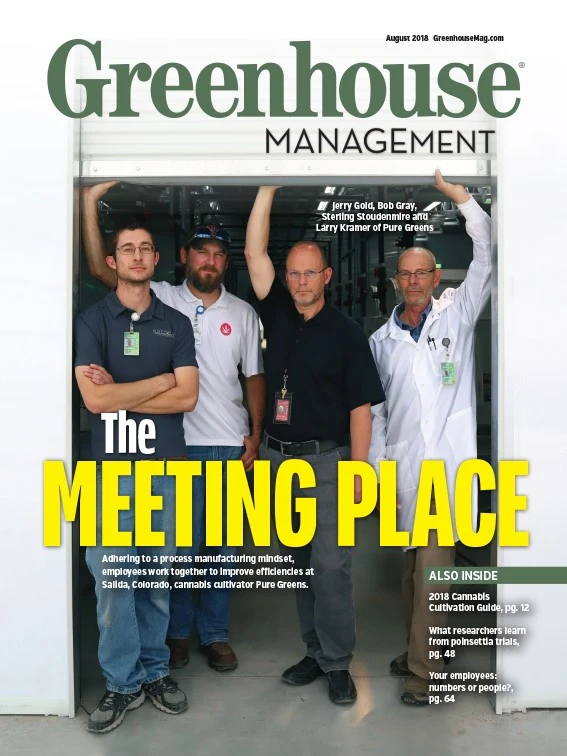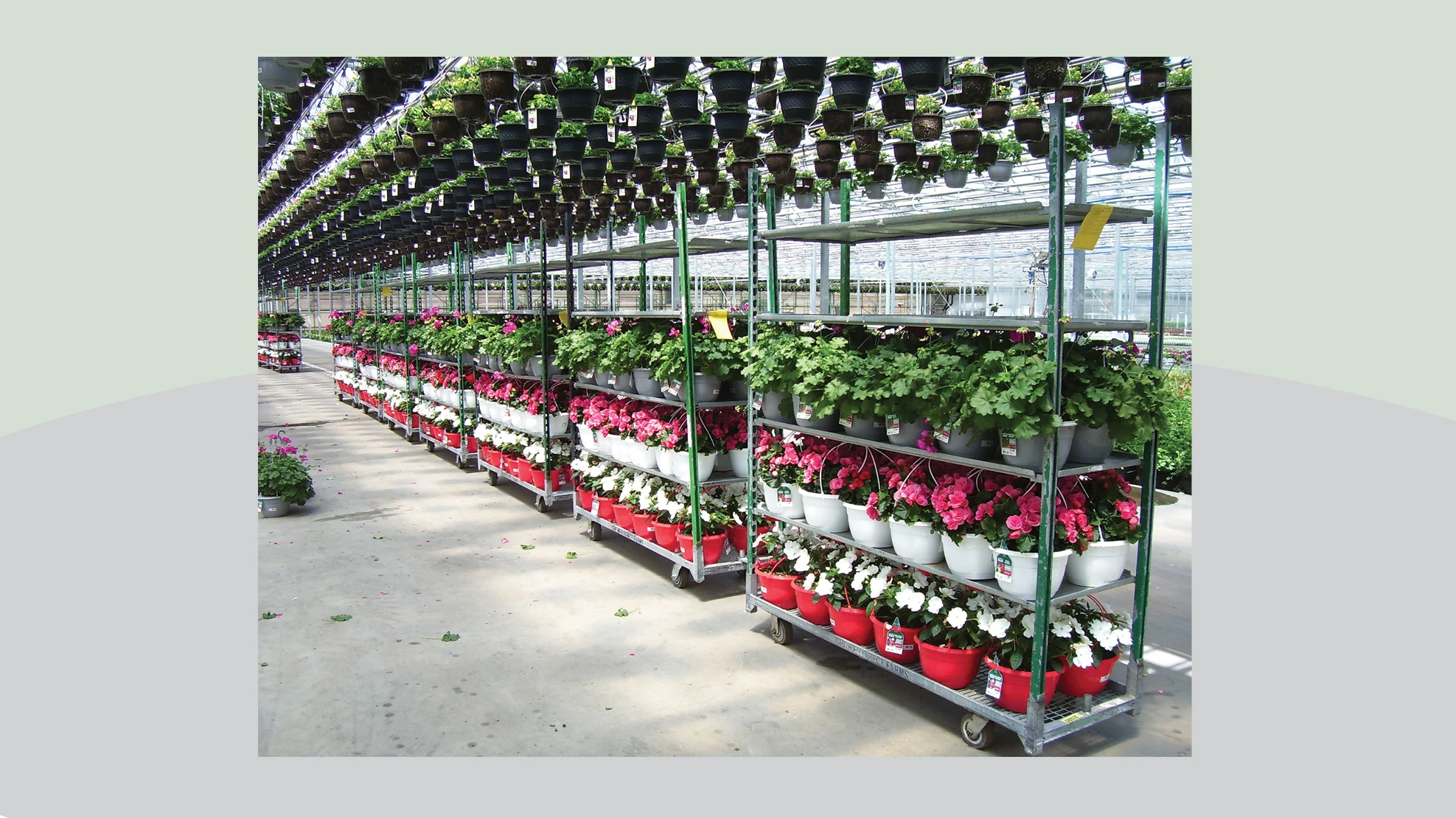
Colorado-based grower Strawberry Fields has been growing medical marijuana since 2010 and expanded to recreational production when adult recreational use became fully legal in January 2014. Co-founded by Mike and Rich Kwesell, Strawberry Fields now has five locations in Colorado, producing its product in greenhouse structures more commonly used in floriculture production.
Below, Rich Kwesell talks about the type of structure his business uses, his experiences interacting with the horticulture industry and what he hopes changes with cannabis regulation.
Greenhouse Management: Strawberry Fields grows cannabis in a Venlo greenhouse. What advantages does that have and what advice do you have for growers who may start growing cannabis in a greenhouse?
Rich Kwesell: The main advantage of a taller Venlo style greenhouse is that it allows heat to rise and escape with a greater amount of air volume. Our Venlo greenhouse also slows the changes that occur to the environment, so our cannabis plants don’t have to react as quickly to these temperature fluctuations. A disadvantage to the Venlo style of greenhouse is that the highly ventilated windows allow cold air to enter the greenhouse, so you must make sure it’s sealed tight. The location, average temperatures and [humidity levels] are also key to the type of structure. Be certain your manufacturer is hands-on with service and make sure you check references diligently. Contrary to the popular hort belief, regulated, licensed cannabis growers don’t need to be feared, and are willing to share information about houses that work and those that don’t.
GM: How has the horticulture industry as a whole interacted with Strawberry Fields and has that attitude towards cannabis changed in your experiences?
RK: We are super thankful and appreciative of all the help we’ve received within the horticulture industry and we would not have had the success we have seen if it was not for this. I can fully understand the hesitation some vendors and research outlets have when dealing with the cannabis industry. However, every day it is becoming more accepted as the industry sees the financial viability and legitimacy with more states adopting cannabis programs every election. Our team has attended the last seven Cultivate conventions and we can certainly see a shift of acceptance. While there are still a few vendors who simply will not deal with cannabis growers, as we learned at Cultivate’18, there are also a handful of vendors who have fully embraced this new sector of the hort industry and even promote it in their handouts with pictures of cannabis canopies.
GM: What improvements do you hope to see in cannabis legalization?
RK: We currently are faced with some major hurdles that, when fixed, will present some incredible opportunities for us. The largest is the tax regulation 280E. This basically states that we cannot deduct the cost of our goods sold. While it would take an afternoon to explain all of the details of this law, distilled down, it is the most crippling aspect of our business. When adding in the retail aspect, 280E can slaughter a company with taxes and in some cases reveal larger tax liabilities then the business could possibly have within its coffers. If it weren’t for this regulation, that same business would profit millions. Our companies have been through a full IRS audit, in addition to a state CDOR audit. For most of Colorado’s businesses, this means that they incurred a tax liability with a pound price of $1,500-$2,000 and are paying it off with pounds at $500. Consulting my crystal ball, I see the current administration fixing the 280E law. The question is, will they do it before national legalization?
Get curated news on YOUR industry.
Enter your email to receive our newsletters.
Explore the August 2018 Issue
Check out more from this issue and find your next story to read.
Latest from Greenhouse Management
- Society of American Florists accepting entries for 2025 Marketer of the Year Contest
- Sustainabloom launches Wholesale Nickel Program to support floriculture sustainability
- American Horticultural Society welcomes five new board members
- Color Orchids acquires Floricultura Pacific, becoming largest orchid supplier in U.S.
- American Floral Endowment establishes Demaree Family Floriculture Advancement Fund
- The Growth Industry Episode 3: Across the Pond with Neville Stein
- Flowerful growth
- The Growth Industry Episode 2: Emily Showalter on how Willoway Nurseries transformed its business






